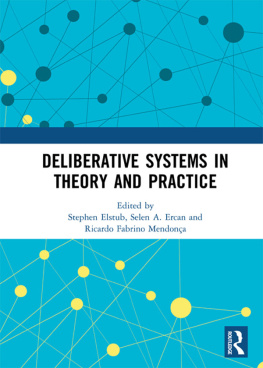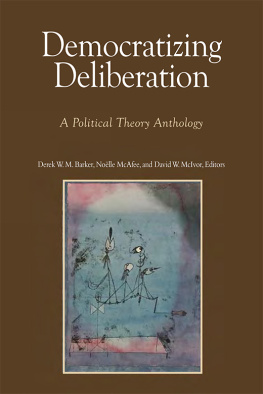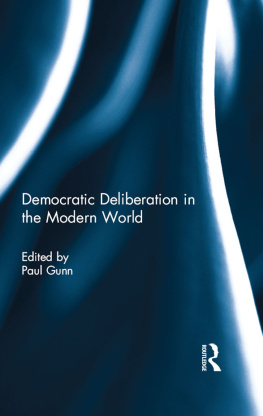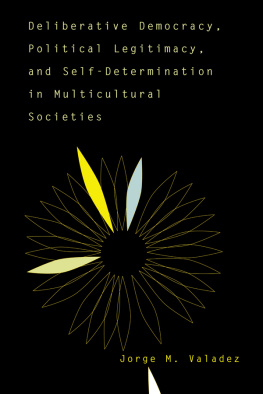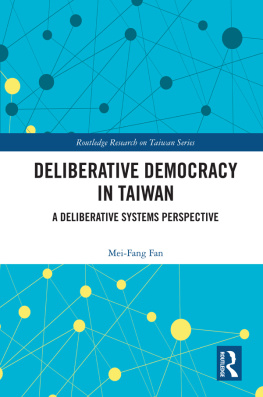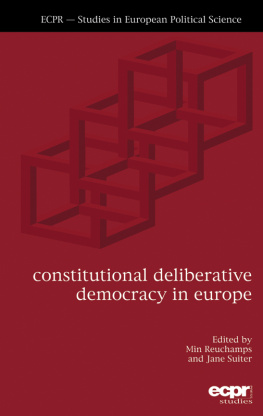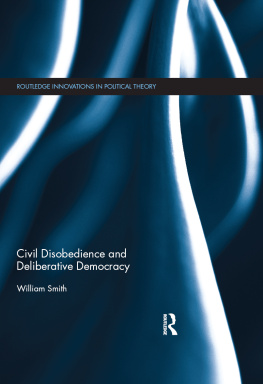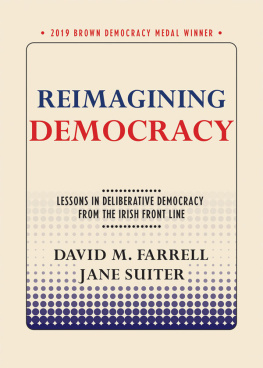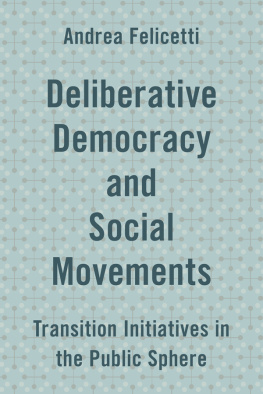Deliberative Systems in Theory
and Practice
Deliberative democracy is a growing branch of democratic theory that is also influential in contemporary political practice. Deliberation involves a process of mutual justification where participants offer reasons for their positions, listen to the views of others, and reconsider their preferences in the light of new information and arguments. More recently, deliberative democracy has taken a systemic turn opening up a new way of thinking about public deliberation in contemporary democracies. The deliberative system approach suggests understanding deliberation as a communicative activity that occurs in a diversity of spaces, and emphasizes the need for interconnection between these spaces. It offers promising solutions to some of the long-standing theoretical issues in the deliberative democracy literature such as legitimation, inclusion, representation, as well as the interaction and interconnection between public opinion formation and decision-making sites more generally. Despite its conceptual and practical appeal, however, the concept of deliberative systems also entails potential problems and raises several important questions. These include questions around the deliberative and democratic credentials of the system as a whole, the prospects of its institutionalization, and various issues related to its empirical analysis. The deliberative systems approach therefore requires greater theoretical critical scrutiny, and empirical investigation. This book contributes to this endeavor by bringing together cutting edge research on the theory and practice of deliberative systems. It identifies the key challenges against the concept to enhance understanding of both its prospects and problems promoting its refinement accordingly.
The chapters in this book were originally published as two special issues of Critical Policy Studies.
Stephen Elstub is a Lecturer in British Politics at the School of Geography, Politics and Sociology, Newcastle University, United Kindgom. His main research interests are in public opinion, political communication, civil society and political participation, all viewed through the lens of deliberative democracy.
Selen A. Ercan is an Associate Professor of Politics at the Centre for Deliberative Democracy and Global Governance, Institute for Governance and Policy Analysis, University of Canberra, Australia. She works in the area of deliberative democracy focusing particularly on the capacity of this approach in addressing irreconcilable value conflicts in contemporary polities.
Ricardo Fabrino Mendona is an Associate Professor at the Department of Political Science, Federal University of Minas Gerais, Brazil. He researches democratic theory, critical theory, politics of recognition, social movements and political communication.
Deliberative Systems in Theory
and Practice
Edited by
Stephen Elstub, Selen A. Ercan and
Ricardo Fabrino Mendona
First published 2018
by Routledge
2 Park Square, Milton Park, Abingdon, Oxon, OX14 4RN, UK
and by Routledge
711 Third Avenue, New York, NY 10017, USA
Routledge is an imprint of the Taylor & Francis Group, an informa business
2018 Institute of Local Government Studies, University of Birmingham
All rights reserved. No part of this book may be reprinted or reproduced or utilised in any form or by any electronic, mechanical, or other means, now known or hereafter invented, including photocopying and recording, or in any information storage or retrieval system, without permission in writing from the publishers.
Trademark notice: Product or corporate names may be trademarks or registered trademarks, and are used only for identification and explanation without intent to infringe.
British Library Cataloguing in Publication Data
A catalogue record for this book is available from the British Library
ISBN 13: 978-0-8153-9613-0
Typeset in Minion Pro
by RefineCatch Limited, Bungay, Suffolk
Publishers Note
The publisher accepts responsibility for any inconsistencies that may have arisen during the conversion of this book from journal articles to book chapters, namely the possible inclusion of journal terminology.
Disclaimer
Every effort has been made to contact copyright holders for their permission to reprint material in this book. The publishers would be grateful to hear from any copyright holder who is not here acknowledged and will undertake to rectify any errors or omissions in future editions of this book.
Contents
Citation Information
The following chapters were originally published in Critical Policy Studies, volume 10, issue 2 (July 2016). When citing this material, please use the original page numbering for each article, as follows:
Chapter 1
The fourth generation of deliberative democracy
Stephen Elstub, Selen A. Ercan and Ricardo Fabrino Mendona
Critical Policy Studies, volume 10, issue 2 (July 2016), pp. 139151
Chapter 2
The boundaries of a deliberative system: the case of disruptive protest
William Smith
Critical Policy Studies, volume 10, issue 2 (July 2016), pp. 152170
Chapter 3
Mitigating systemic dangers: the role of connectivity inducers in a deliberative system
Ricardo Fabrino Mendona
Critical Policy Studies, volume 10, issue 2 (July 2016), pp. 171190
Chapter 4
Deliberative elitism? Distributed deliberation and the organization of epistemic inequality
Alfred Moore
Critical Policy Studies, volume 10, issue 2 (July 2016), pp. 191208
Chapter 5
Reflections on the theory of deliberative systems
John S. Dryzek
Critical Policy Studies, volume 10, issue 2 (July 2016), pp. 209215
The following chapters were originally published in Critical Policy Studies, volume 10, issue 3 (October 2016). When citing this material, please use the original page numbering for each article, as follows:
Chapter 6
Message received? Examining transmission in deliberative systems
John Boswell, Carolyn M. Hendriks and Selen A. Ercan
Critical Policy Studies, volume 10, issue 3 (October 2016), pp. 263283
Chapter 7
Brazilian Social Assistance Policy: an empirical test of the concept of deliberative systems
Debora Rezende de Almeida and Eleonora Schettini Cunha
Critical Policy Studies, volume 10, issue 3 (October 2016), pp. 284304
Chapter 8
Deliberative networks
Andrew Knops
Critical Policy Studies, volume 10, issue 3 (October 2016), pp. 305324
Chapter 9
Reflections on how to empirically ground the deliberative systems theory
Leonardo Avritzer
Critical Policy Studies, volume 10, issue 3 (October 2016), pp. 325329
For any permission-related enquiries please visit:
http://www.tandfonline.com/page/help/permissions

